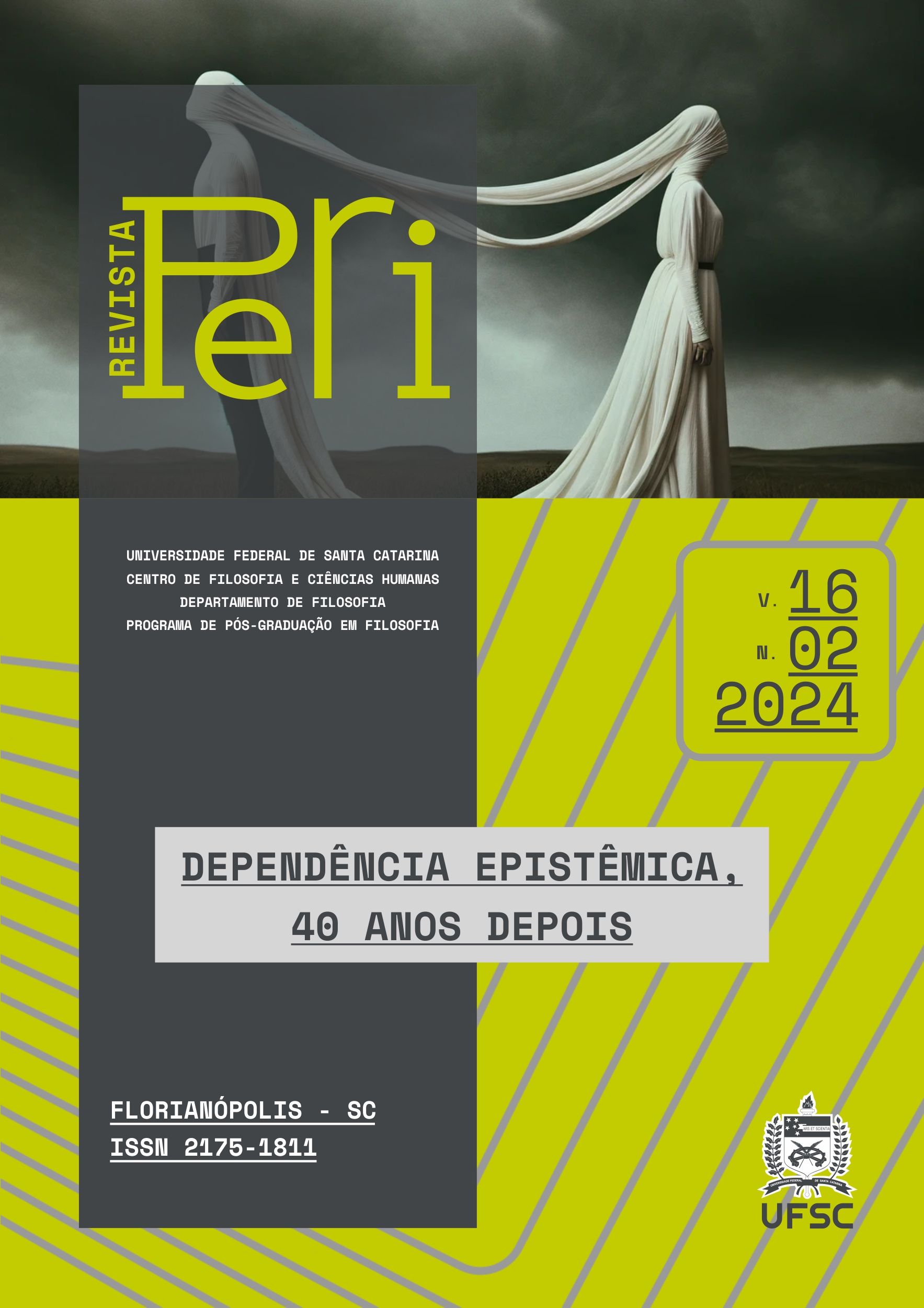Outlines for a Metatheory of Expertise from the Veritistic Approach and Its Main Problems
Palavras-chave:
Epistemology of Expertise, Veritism, Alvin GoldmanResumo
Whenever we think of expertise we think of someone who is either in a better or worse epistemic position than us regarding certain topic. Complications arise when we try to explain what makes up expertise: is epistemic asymmetry sufficient? How to characterize such asymmetry? Is it a matter of having more true beliefs (than)? These traits and others have already been claimed as defining features of expertise in many theories that attempt to answer the question "What is expertise?”. It is my understanding that the enterprise of providing a unified conception of expertise needs some clarification about what we should be looking for when trying to answer the question of what expertise is. I aim to examine Alvin Goldman’s conception of expertise and its most salient problems, and then extrapolate from those to a few general concerns that could be applied to competing theories of expertise. I end with a few provisional and expandable recommendations on how to approach the problem of the concept of expertise from a metatheoretical point of view.
Referências
COADY, D. What to believe now: applying epistemology to contemporary issues. United
Kingdom: Wiley-Blackwell, 2012.
GOLDMAN, A. Experts: which ones should you trust?. Philosophy and Phenomenological
Research, v. 63 (1), 2001, p. 85–109
________. Expertise. Topoi, v. 37, 2018, p. 3-10.
HAACK, S.; KOLENDA, K. Two Fallibilists in Search of the Truth. Aristotelian Society
Supplementary Volume, v. 51(1), 1977, p. 63–104.
HINTIKKA, J. Knowledge and belief: an introduction to the logic of the two notions. New
York: Cornell University Press. 1962.
LACKEY, J. 2018. Experts and peer disagreement. In: BENTON, M.; HAWTHORNE, J.;
and RABINOWITZ, D. (eds.). Knowledge, belief, and god: new insights in religious
epistemology, Oxford: Oxford University Press: 228-245.
MARTINI, C. The epistemology of expertise. In: FRICKER, M.; GRAHAM, P. J.;
HENDERSON, D.; PEDERSEN, N. J. L. L. (Orgs) The Routledge handbook of social
epistemology. New York and London: Routledge, Taylor & Francis. 2020. P. 115-122.
MCGRATH, S. Moral disagreement and moral expertise. In: SHAFER-LANDAU, R.
(Org.) Oxford studies in metaethics. Vol. 3. New York: Oxford University Press. 2008. P.
-108.
QUAST, C. Expertise: a practical explication. Topoi, v. 37, 2016, p. 11-27.
SCHOLZ, O. (2009). Experts: what they are and how we recognize them – a discussion of
Alvin Goldman’s views”. In: SHURZ, G.; and WERNING, M. (eds.). Reliable knowledge
and social epistemology: essays on the philosophy of Alvin Goldman and replies by
Goldman, Amsterdam: Grazer Philosophische Studien: 187–208.
WATSON, J. C. Expertise: a philosophical introduction. New York: Bloomsbury Academy.
________. A history and philosophy of expertise: the nature and limits of authority. New
York: Bloomsbury Academy. 2023.
Downloads
Publicado
Edição
Seção
Licença
Copyright (c) 2025 João Batista Ferreira Filho

Este trabalho está licenciado sob uma licença Creative Commons Attribution-NonCommercial-ShareAlike 4.0 International License.
1. Autores mantém os direitos autorais e concedem à revista o direito de primeira publicação, com o trabalho simultaneamente licenciado sob a Creative Commons Attribution License que permite o compartilhamento do trabalho com reconhecimento da autoria do trabalho e publicação inicial nesta revista.
2. Autores têm autorização para assumir contratos adicionais separadamente, para distribuição não-exclusiva da versão do trabalho publicada nesta revista (ex.: publicar em repositório institucional ou como capítulo de livro), com reconhecimento de autoria e publicação inicial nesta revista.
3. Autores têm permissão e são estimulados a publicar e distribuir seu trabalho online (ex.: em repositórios institucionais ou na sua página pessoal) a qualquer ponto antes ou durante o processo editorial, já que isso pode gerar alterações produtivas, bem como aumentar o impacto e a citação do trabalho publicado (Veja O Efeito do Acesso Livre).


